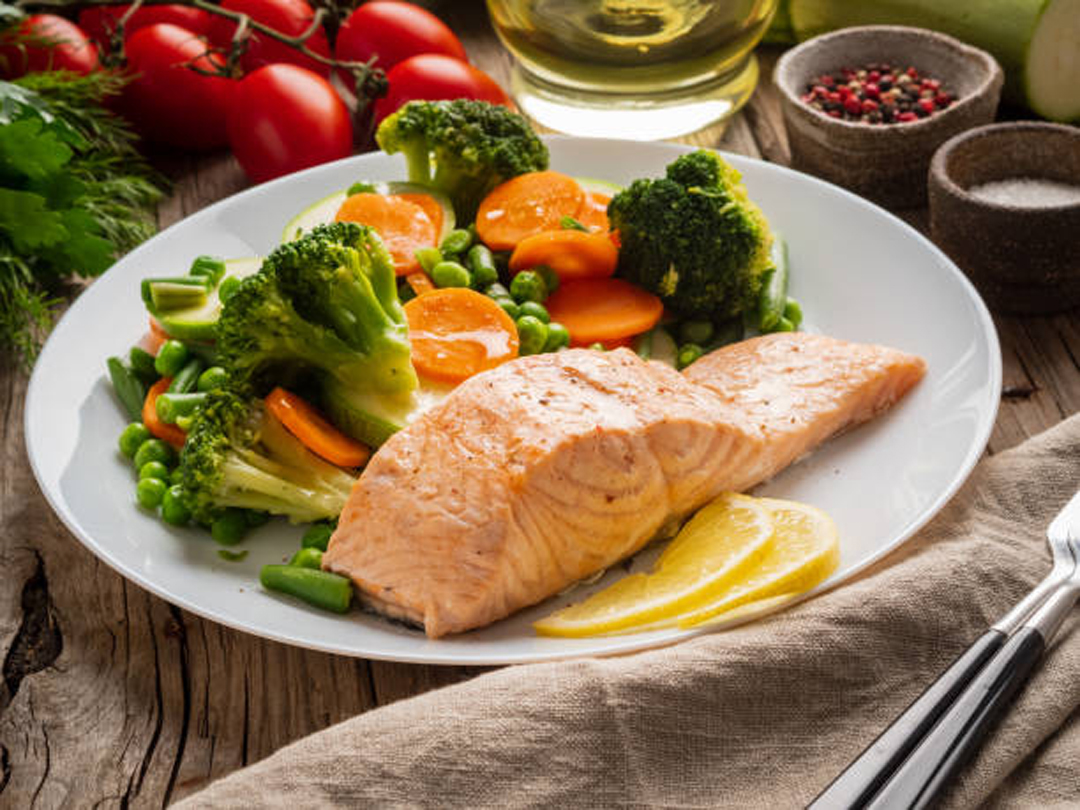Maintaining a toned stomach is not just about appearance but also contributes to healthy digestion. Strong abdominal muscles help to keep the back straight and the pelvic floor firm, and they squeeze and relax the intestines to move food through the large intestine. Exercises that focus on the stomach muscles can promote a flatter stomach and enhance digestion. Fiber is crucial for a healthy digestive system, but many Americans consume less than the recommended amount. Eating brown rice, whole-wheat bread, seeds, lentils, fruit, and drinking more water can increase fiber intake. It’s important to pick the appropriate type of fiber since whole grains with insoluble fiber can cause pain for people with irritable bowel syndrome. Soluble fiber sources such as lentils, apples, strawberries, and oats are better options.
A low-FODMAP diet may help alleviate digestive symptoms caused by foods with short-chain carbohydrates. While not all FODMAPs need to be eliminated from the diet, it’s crucial to be aware of how much is being consumed. Chronic constipation is not necessarily a result of aging but could be due to lifestyle factors such as poor diet and lack of exercise. It’s important to talk to a doctor about medication routines and consider adding physical exercise and modifications to the diet to improve digestive health.
Get in shape
Having a toned stomach is good for your health as well as your appearance. When your abdominal muscles are strong, they help keep your back straight and your pelvic floor firm. Also, these muscles are very important for healthy digestion since they squeeze and relax the intestines. This helps transport the food through the large intestine. By doing exercises that focus on your stomach muscles, you can not only have a flatter stomach, but you can also enhance your digestion. So why not take the first step toward better health today by adding some workouts that firm your stomach to your training routine?
Put fiber on your plate
A healthy digestive system is important for general health, and getting enough fiber is one of the easiest ways to keep it that way. Unfortunately, most Americans don’t get nearly as much fiber as the USFDA says they should. Women should try to get 25 grams of fiber a day and men should try to get 38 grams, but the typical American only gets 15 grams.
Here are some simple things you can do to get more fiber into your diet. Start by choosing brown rice instead of white rice and whole-wheat bread instead of white bread. Adding seeds to your breakfast cereal, especially flaxseed (linseed), is another fantastic method to get more fiber. Also, consider adding beans and lentils, which are high in fiber, to soups, chili, and casseroles.
Lastly, don’t forget to consume fruit as a snack. Fruit is a terrific way to gain fiber. When you eat more fiber, you should also drink more water. By making these simple changes to your diet, you may get all of the benefits of a high-fiber diet, such as a healthy digestive system and a lower risk of getting sick.
Pick the appropriate fiber
Not all fiber helps with digestion, and eating too much of one type of fiber can be bad for certain people. Research that was published in the British Medical Journal indicated that many people with irritable bowel syndrome feel a lot of pain when they eat whole grains with insoluble fiber, like brown rice and whole-wheat bread. If you have a painful reaction after consuming these foods, stick to soluble fiber sources like lentils, apples, strawberries, and oats.
And just a word of caution: young children, especially those under two, and people who don’t eat much shouldn’t be told to fill up on fiber because it won’t give them the balanced diet they need for good health and energy.
Attempt a low-FODMAP diet

Recent research has shown a number of items that could be to blame for up to 75% of stomach problems. These foods include pears, onions, garlic, baked beans, pork, fish that has been breaded, alcohol, barley, and wheat. All of these foods have “short-chain” carbohydrates, which are also called FODMAPs. When these foods are eaten by people who are prone to it, they can ferment in the gut and make hydrogen and methane, which can cause pain, bloating, and diarrhea.
You don’t have to cut out all FODMAPs from your diet, which is good news. When the intestines is too full of these foods is when problems happen whether you have symptoms, you might want to talk to your doctor about a FODMAP diet to find out whether it could help you. By making simple changes to your diet and being aware of how much FODMAP you eat, you may be able to relieve uncomfortable gut symptoms and improve your digestive health as a whole.
Avoid blaming your age
Do you have trouble going to the bathroom and say it’s because you’re getting older? Well, enough is enough! Even while four out of ten older adults have chronic constipation, it is not just because they are becoming older. In fact, living a sedentary life, eating poorly, and taking certain drugs can all make this problem worse.
So, instead of feeling helpless, take control of your digestive health by talking to your doctor about your prescription routine and looking into other possibilities. Also, making simple modifications to your food and adding physical exercise to your daily routine can help your digestion and general health in a big manner. Remember that your age is just a number, but you can take charge of your health.
Make a relaxing beverage
Have you ever been diagnosed with Crohn’s disease or irritable bowel syndrome? It might be hard to find treatment from these diseases, but there are natural medicines that can help relieve symptoms and even clean your colon. Why not try peppermint tea, passionflower tincture, or boiling water with crushed fennel seeds in it? It has been proven that these drinks can help ease uncomfortable symptoms. Also, psyllium husks, flaxseed (linseed), aloe vera, slippery elm bark, and buckthorn bark are also natural medicines that can help clear the colon. Try these solutions and discover how they can make your life better.
Don’t rely on anyone
If you take medicine that makes you constipated as a side effect, it might be unsafe to depend on laxatives for proper bowel movement in the long run, which could be bad for your health. You should talk to your doctor or pharmacist about whether there are other medicines that won’t cause this adverse effect. While you wait to make the switch, you might want to try a gentler option to laxatives, like an over-the-counter glycerol suppository. But keep in mind that this isn’t a long-term fix, and it’s crucial to get advice from a doctor to figure out what’s causing your constipation.
Be wary of colonic irrigation
Colon cleansing has been done for hundreds of years, but it became more popular in the 1990s. But new information suggests that this surgery may be harmful. The method involves flushing out the intestines with warm water. It is said to enhance the immune system and help people lose weight. But a recent assessment of data done in the US indicated that people who have colonic irrigation typically have side effects include feeling sick, getting cramps, throwing up, and even renal failure. Before trying this therapy, it’s important to talk to a doctor to find out all of the possible dangers and side effects.
Eliminate alcohol

Small Intestinal Bacterial Overgrowth (SIBO) is a disorder in which even tiny amounts of food can induce significant and uncomfortable symptoms like bloating, gas, abdominal discomfort, constipation, and diarrhea. These symptoms are caused by an overgrowth of bacteria in the small intestine. Antibiotics and probiotics are often used to treat SIBO. But new research reveals that people who are more likely to have SIBO might be able to feel better if they stop drinking alcohol altogether. If you have symptoms of SIBO, you should talk to your doctor about the best way to treat it, including whether giving up alcohol could be a good idea for you.
Grow the proper bacteria
Probiotics are “friendly” bacteria that live naturally in the gut. They have been linked to a number of benefits for digestive health, such as easing the symptoms of IBS and travelers’ diarrhea. If you want to improve the health of your bowels, especially after taking antibiotics, you might want to take a probiotic supplement, which you can find in health and food stores. Probiotics can also be found in live yogurt, which can be used as a natural supply. Adding probiotics to your diet can help keep a healthy mix of bacteria in your stomach, which can enhance your digestive health in the long run.
Get tested
If you only look at the symptoms, it can be hard to tell the difference between celiac disease and irritable bowel syndrome (IBS). Both diseases cause comparable symptoms, such as bloating, stomach pain, diarrhea, and inability to go to the bathroom. But it’s important to remember that celiac disease affects the small intestine while IBS usually affects the big intestine. Anyone with IBS symptoms should get tested for celiac disease, either through a blood test or by cutting gluten out of their diet and seeing whether they feel better. If you have IBS, it’s important to talk to your doctor about setting up a test. Don’t let the fact that you have similar symptoms stop you from receiving the correct diagnosis and treatment you need.
Use cosmetics with caution
If you have celiac disease and eat a gluten-free diet but still have stomach problems and skin rashes, your lipstick could be to blame. You can be so sensitive to gluten that even the small amount in some cosmetics might make you sick. Even if you carefully look at the list of ingredients in your beauty and skin care products, it’s hard to be sure that there is no gluten in them. The only way to know for sure if a product has the protein in it is to stop using it and see if your symptoms get better. Don’t forget that your cosmetics could be getting in the way of your efforts to live a gluten-free life.
Retrain for consistency
Retraining your bowels can be a good way to deal with chronic constipation. The approach includes drinking more water and eating more fiber until your body can manage it, as well as eating at regular times and going to the bathroom at regular times every day. It’s best to go to the bathroom first thing in the morning or after eating, whichever is easier. It could help to have a high-fat lunch and a cup of coffee before going to the bathroom to get your bowels moving. Try to keep calm while you’re in the restroom by using relaxation techniques or listening to music. By using these tips, you can help control your bowel motions and feel more comfortable and in control.

